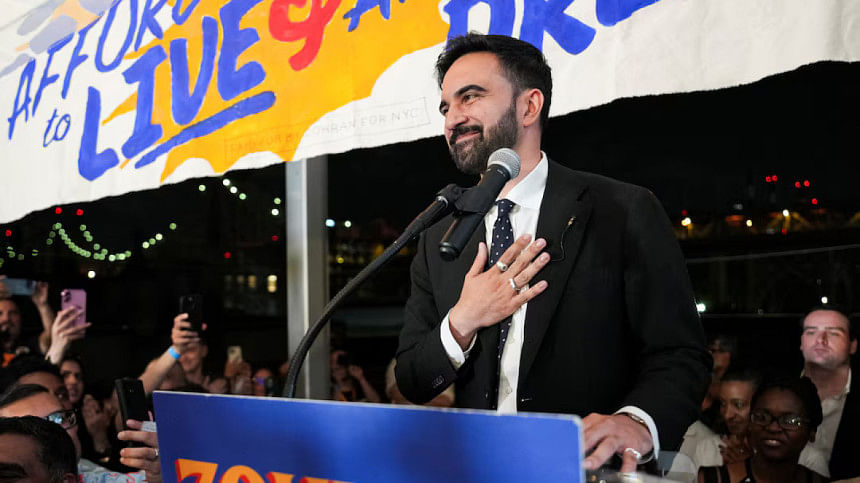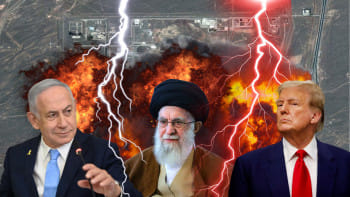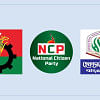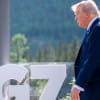Politics of courage: What Zohran Mamdani is showing the world

Let's be honest. Politics has exhausted us. Everywhere we turn, there's performance without purpose, speeches without soul. It's the same tired playbook of personal insults, false propaganda, and empty promises—without a single solid roadmap for development. But then someone like Zohran Mamdani walks in. He's loud, brown, joyful with ear-to-ear smiles, angry—and reminds us what truth sounds like when it's not diluted for comfort. He doesn't speak like a man running a campaign. He speaks like someone with nothing to lose but his integrity.
And for those of us in Dhaka, scrolling through timelines between sips of tea and blaring traffic horns, something about Zohran strikes a deep chord. This isn't just a think piece—it's a feeling. A bridge. That soft thump in your chest whispering, "I see myself in this."
He's the kind of man who steps onto a debate stage, calls himself Donald Trump's worst nightmare—and means it. A Gujarati Muslim. Born in Uganda, and raised in Queens. The son of Mira Nair and Mahmood Mamdani. But more than that, he is a mosaic of migration, struggle, and defiance.
When Zohran speaks about Palestine, he's not fishing for applause. When he calls Modi a war criminal, it's not for shock value. He's carrying generations of silence—and he refuses to inherit it. "They say I don't belong here," he says. "But Queens is my home." And with that, a thousand of us, oceans away, nod quietly in agreement.
Politics, but make it personal
Zohran isn't just organising; he's storytelling. His campaign doesn't feel like politics—it feels like someone finally speaking our language, sometimes literally. That Deewar remix in his Hindi video? Genius. Not just viral content, but a cultural reset. "Mere paas aap hain"—it wasn't a line, it felt like a hug.
He doesn't condescend. He connects. His town halls feel like block parties. His volunteers? Everyday people who've never "done politics" before but are now out on the streets—because Zohran makes them believe it matters.
This is what happens when politics isn't borrowed from think tanks but born from lived pain and love. What makes Zohran's campaign stand out even more is his use of marketing—not as manipulation, but as storytelling. It's a masterclass in emotional branding. From the iconic Bollywood remix tapping into immigrant nostalgia to his short-form videos breaking down complex policies, Zohran understands that attention is currency, but trust is wealth.
Every visual, every font, every caption feels intentional. His team uses clean, bold design and messaging that centres people—not him. He doesn't just post selfies. He posts solidarity with organisers, tenants, and strikers. His Instagram doesn't sell a candidate; it documents a movement. His materials are translated, accessible, and beautifully lit. Even his humour—calling himself the "Kendrick Lamar of affordability"—shows cultural fluency and a rare political wit.
And the brilliance? It never feels like branding. It feels like him.
The moments that moved everything
There are campaigns, and then there are movements that ripple across continents. These were Zohran's. The debate stage takedown of Andrew Cuomo—where Zohran, with calm fire in his voice, delivered the now-iconic "The name is Mamdani. MAMDANI." It wasn't just a mic-drop moment. It was a reclaim—of name, of presence, of power. While Cuomo relied on status and volume, Zohran relied on precision and principle. That moment exploded on social media because it wasn't just about one man correcting another; it was every person who's ever been misnamed, dismissed, or underestimated rising with him.
Then came the Bollywood video that turned every immigrant dad into a potential voter. The hunger strike for Gaza, where he didn't just say he stood for Palestine—he gave his body to the cause. The Modi moment, where he named the unnamable and made it okay for South Asians to stop pretending genocide is a matter of diplomacy.
These weren't stunts. They were stands. And they resonated—not because they were designed to go viral, but because they were meant to be felt. And we felt them.
His mandates: Not billionaire-friendly, just human
Here's what Zohran is offering: freeze rents—not suggest, freeze. Make buses free—because mobility is dignity. Create a department of community safety—because police should not be mental health responders. Tax the ultra-rich—because why are we debating billionaire yachts while people can't afford insulin? Universal childcare. Cancel medical debt. Protect tenants.
It's not flashy; rather, it's fair. And it's built for people who've been invisible for far too long. As Zohran says, "This city has catered to billionaires for too long. It's time we governed for the rest of us."
Zohran doesn't mince words when it comes to immigration. He says it plainly: defund ICE. End the contracts. Stop the deportations. No human being is illegal.
In a city built by immigrants, this position is both radical and obvious. And it's personal. His policies read like someone who knows what it's like to hold his father's passport with trembling fingers at immigration control.
The moment you stand for something, they'll try to tear you down with things such as right-wing ads, death threats, and accusations of being "divisive." Some even attempted to darken his image in photographs—literally. For his pro-Palestine stance, he's been labelled antisemitic. But ever the honest, sobering presence, Zohran has managed to rally numerous New York–based Jews who now proudly declare him as their first choice.
With each attack, his movement grew. Because when you speak from the chest—not the script—people remember you.
Why it hits home for Bangladesh
We're not idolising, we're learning. Back home, the rise of NCP offered a glimpse of what youth-led, progressive politics could look like. But we're still finding our way. As we do, Zohran shows us what it means to speak up, stand tall, and stay rooted.
No billionaire backers? No matter. Afraid of being 'too loud'? Be louder. Torn between relevance and principles? Choose both. We're not trying to import a saviour. We're trying to reclaim our own voice. Zohran just reminds us what that sounds like.
Rahat Ara Kabir Kheya is B2B development manager at British American Tobacco Bangladesh (BATB).
Views expressed in this article are the author's own.
Follow The Daily Star Opinion on Facebook for the latest opinions, commentaries, and analyses by experts and professionals. To contribute your article or letter to The Daily Star Opinion, see our guidelines for submission.

 For all latest news, follow The Daily Star's Google News channel.
For all latest news, follow The Daily Star's Google News channel. 










Comments